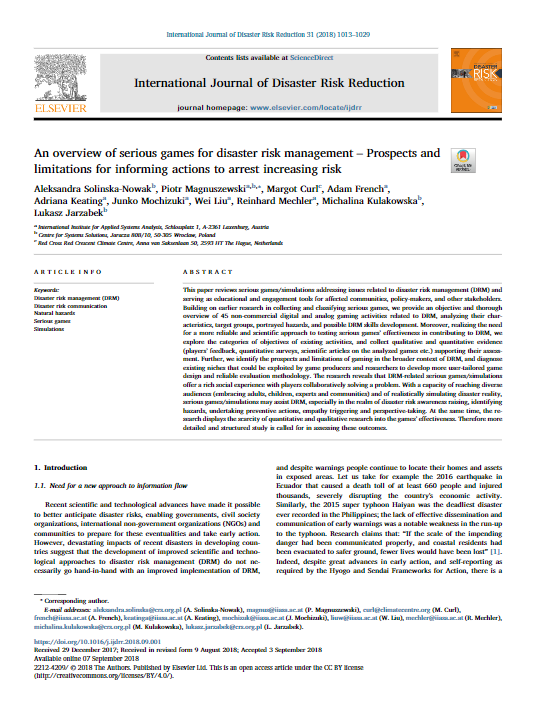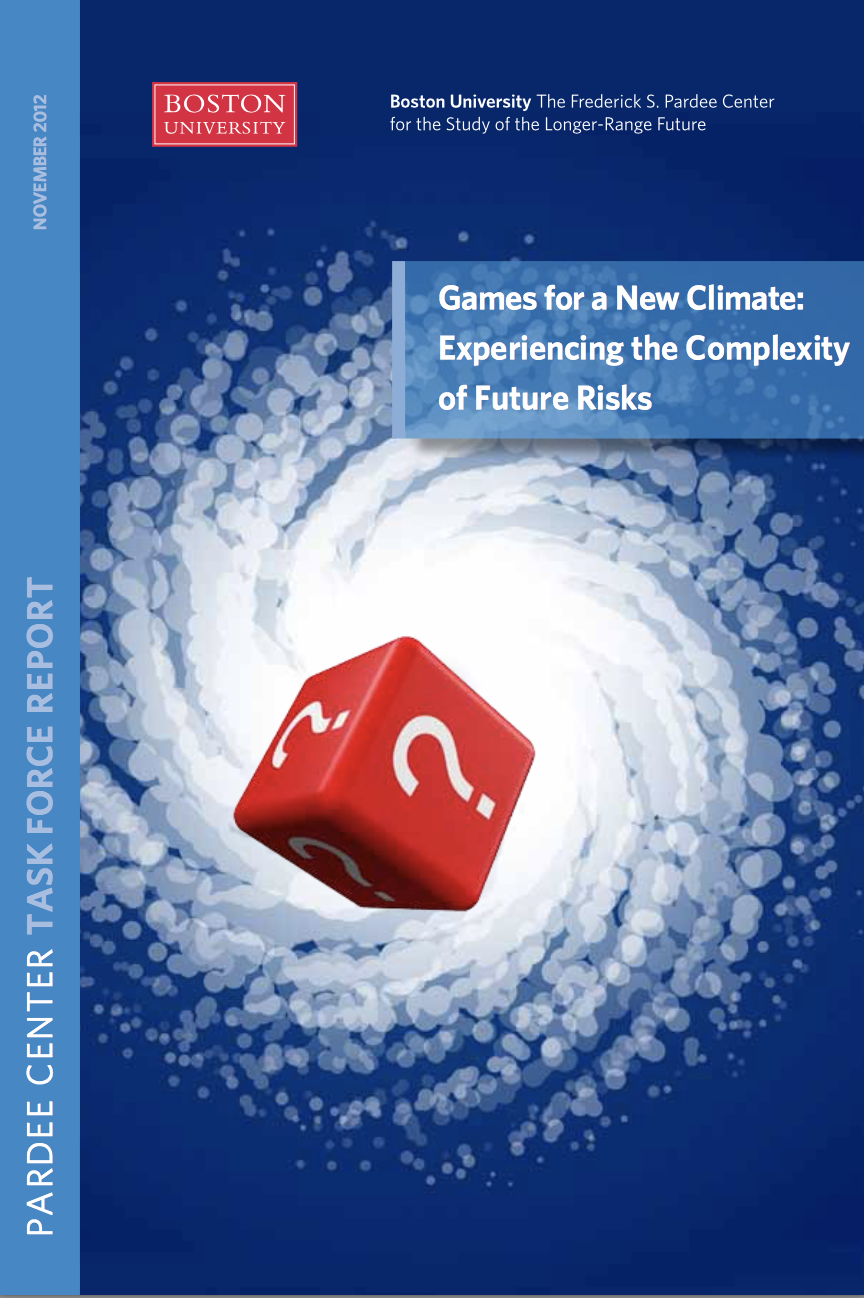
Games for a new climate
- Learning through games
- Play our games
- Virtually amazing
- Support & FAQ
Why games
“Play is the highest form of research.” – Albert Einstein
Games are a fun but serious way of helping humanity tackle the complexities, volatilities and uncertainties that could be hallmarks of the “new normal” for the global climate. Five reasons for using games in learning and dialogue:
- They encourage active learning and active engagement in dialogues.
- Games allow you to simplify complex systems.
- In games, you have to take decisions and receive feedback on the result of that decision.
- Games provide opportunity for reflection, discovery, exploration and challenge.
- And …. they are fun! Considering that emotions matter in learning – this is also a serious goal.
Games and the Climate Centre
 In recent years the Climate Centre and its partners have designed at least 45 games about humanitarian issues like disaster preparedness, gender, food security, health, migration. Across five continents, Red Cross Red Crescent volunteers, goverment officials, farmers, schoolchildren, meteorologists, students and climate-policy negotiators have used our games.
In recent years the Climate Centre and its partners have designed at least 45 games about humanitarian issues like disaster preparedness, gender, food security, health, migration. Across five continents, Red Cross Red Crescent volunteers, goverment officials, farmers, schoolchildren, meteorologists, students and climate-policy negotiators have used our games.
Want to learn more? Read Pablo Suarez, our Associate Director for Research and Innovation, article on how games can support the development of better governance systems.
Resources by the Climate Centre and partners
 Our Games for a New Climate video shows how games speed up learning, dialogue, and action on climate risks: they involve decisions with consequences, enabling players to inhabit the reality of climate-risk management and test possible future scenarios in a captivating and fun way.
Our Games for a New Climate video shows how games speed up learning, dialogue, and action on climate risks: they involve decisions with consequences, enabling players to inhabit the reality of climate-risk management and test possible future scenarios in a captivating and fun way.
From Darkness to Illumination: Climate grief and resilience in a sea of warnings
December, 2019
Brief report for Climate-KIC’s Deep Demonstration on “Forging Resilience”
September, 2018
This paper reviews serious games/simulations addressing issues related to disaster risk management (DRM) and serving as educational and engagement tools for affected communities, policy-makers, and other stakeholders.
 Ready! Lessons in the design of humanitarian games
Ready! Lessons in the design of humanitarian games
February, 2014
This detailed look at best practice for using games in disaster risk reduction, using the example of Ready! in Namibia, documents what’s been learned by humanitarian organisations, designers, and practitioners interested in the potential of games.
 Can games help people manage the climate risks they face?
Can games help people manage the climate risks they face?
November 6, 2012
Games with an underlying serious purpose can speed up learning, dialogue and action on climate risks, engaging people’s minds and emotions, in sharp contrast to unidirectional learning through traditional lectures and PowerPoint presentations. Learn how with this working paper, the first in our series.
 Loss and damage in a changing climate
Loss and damage in a changing climate
27 July, 2015
This paper examines the role of games in improving communication and spurring learning, and improving decision-making capacity about climate risk management amongst diverse stakeholers. Among other aspects, it discusses challenges associated with communicating the concept of loss and damage and the implications post-2015.
November, 2012
Humanitarian and development practitioners are confronting an irrefutable challenge: the past no longer elucidates the future. This book explores how we can accelerate learning and dialogue for climate-compatible development in a changing world among very diverse stakeholders.
 Handwashing with Ananse – Evaluation
Handwashing with Ananse – Evaluation
August, 2017
The results of an evaluation of the effectiveness of a game-based handwashing curriculum to generate learning and behavior change.
Partners

For questions, please contact: games@climatecentre.org
Filter games
Duration

Support offered
Would you like to explore how serious games can enrich your organisatinal learning processes? You are very welcome to explore any of our materials. As with any game, it is typically easier if someone can show you how to run something first, so do not worry if from the materials alone some activities may seem cryptic. We are happy to provide support where needed:
1. Ad hoc game support: We can support you with specific questions on our games.
2. Game design: We can (co-)design new games that contribute to better dialogue / learning around climate resilience.
3. Training support: We can organise Training of Trainer sessions. Please find an example here of a tried and tested 3 day agenda. We can adapt the agenda to cater to specific needs.
To contact us, please e-mail: games@climatecentre.org
Facilitation Tips!

Please find general facilitation tips – see also: “General Guidelines”
Our top tips:
1. Safety first – make sure physical and/or emotional risks are minimised.
2. Give out instructions step by step. Don’t explain all at once. And where possible, let people experience the outcomes of decisions.
3. Practice makes perfect! Try your games a few times with a safe audience (e.g. friends and family), before you try them with a ‘high stake’ audience.
4. Enjoy! If you show you are enjoying the experience, people playing the game are also likely to enjoy the process.

 An overview of serious games for disaster risk management–Prospects and limitations for informing actions to arrest increasing risk.
An overview of serious games for disaster risk management–Prospects and limitations for informing actions to arrest increasing risk.




























